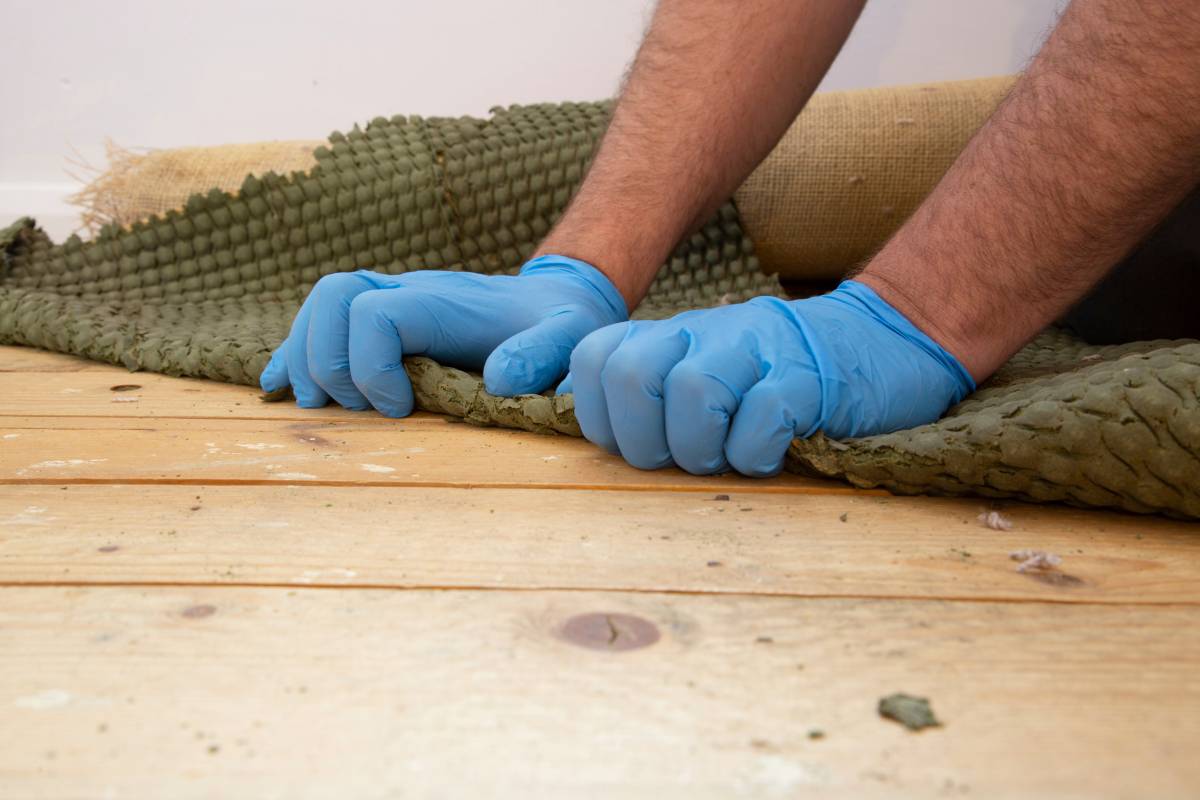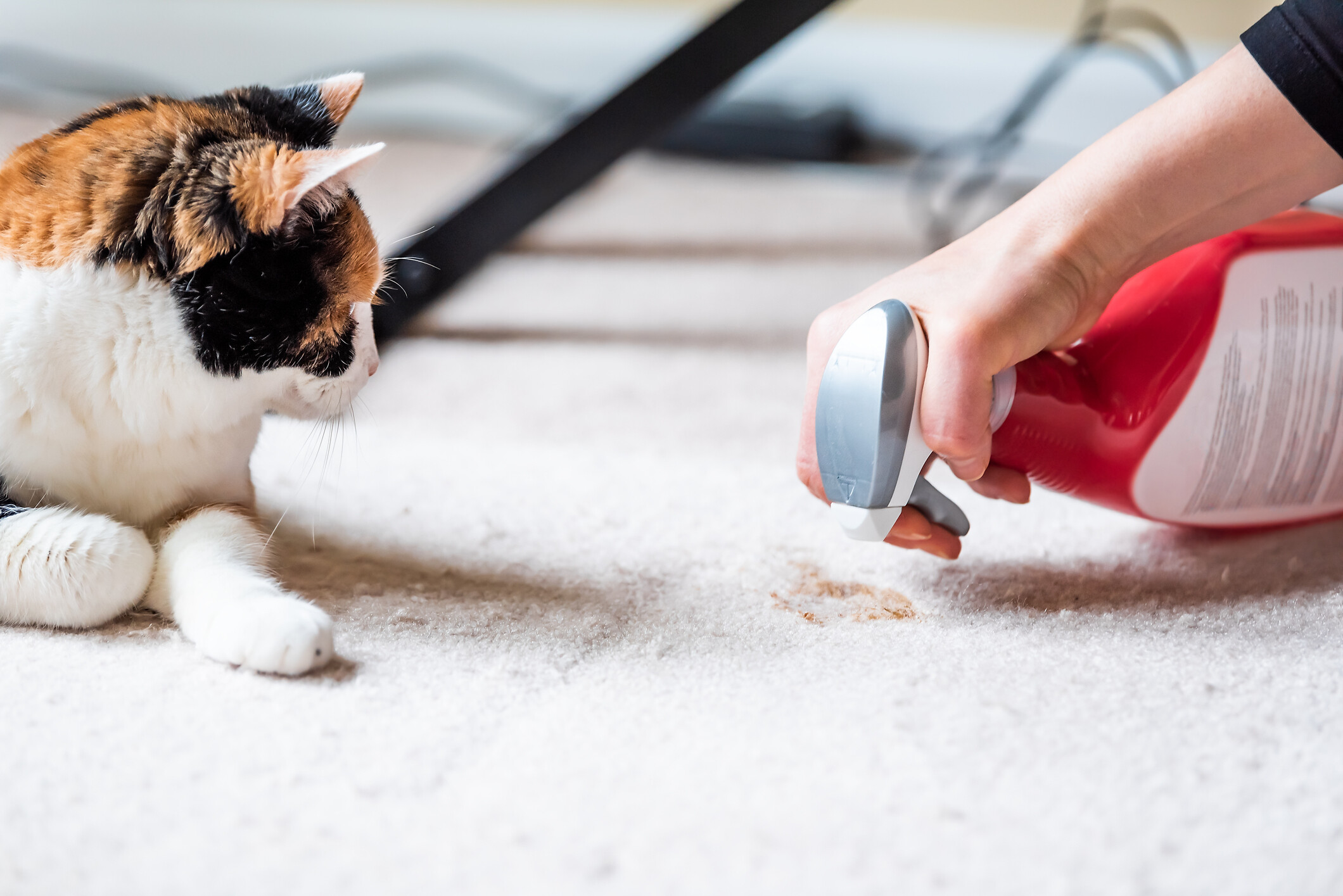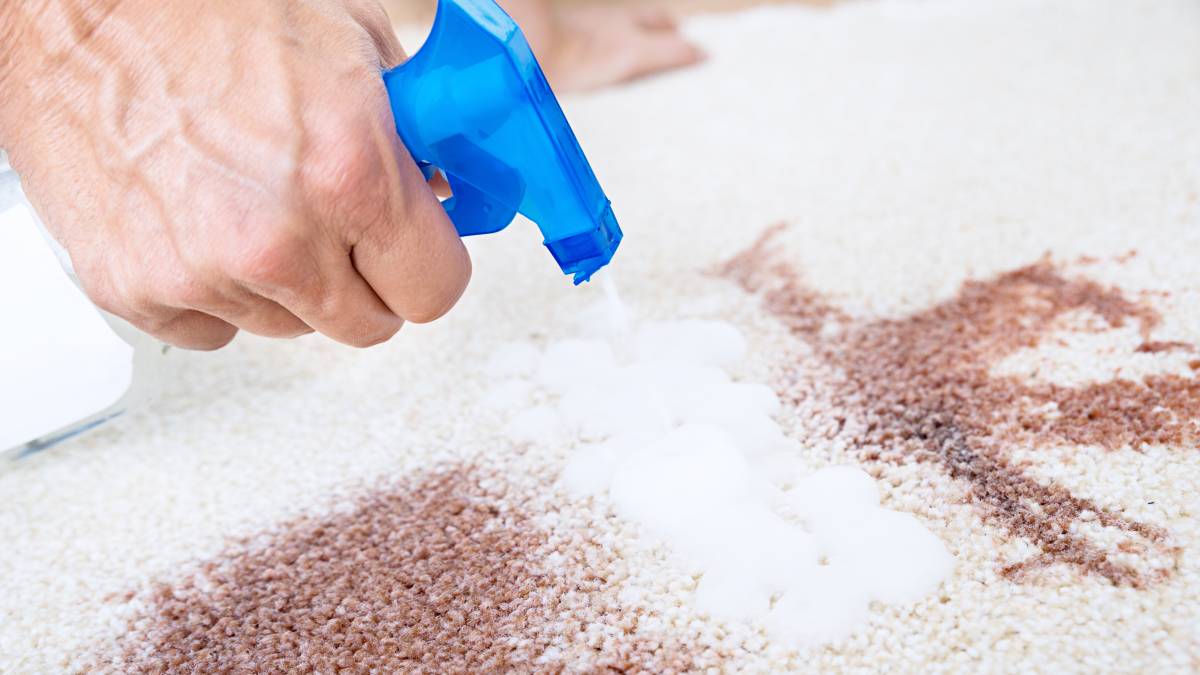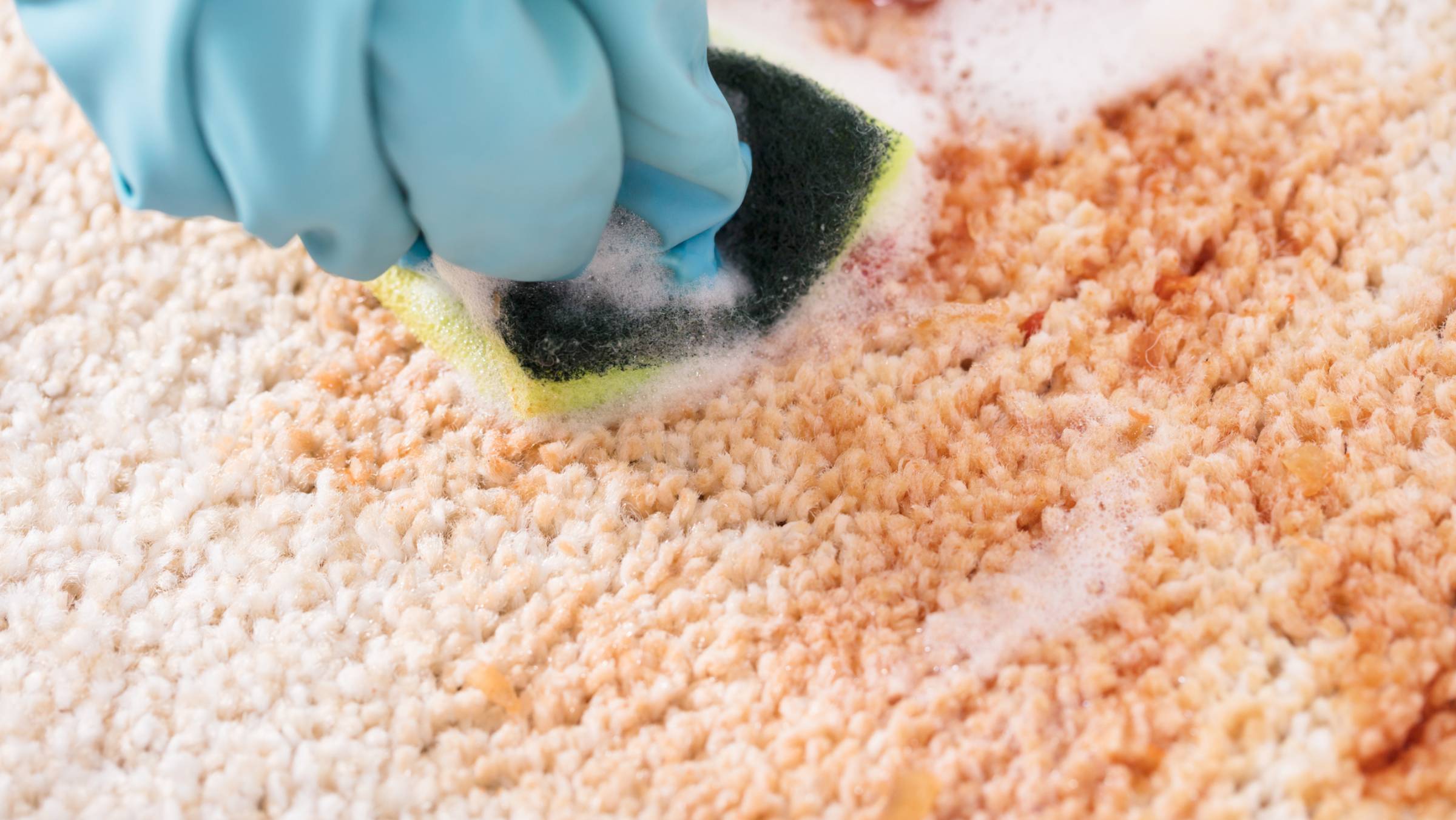
- Home/
- Guides/
- Carpet Cleaning/
- How to Get Blood Out of Carpets
5 easy ways to get blood out of carpets
Blood on your carpet? Here are quick and effective cleaning solutions you can try.
Last Updated on
What to know when getting blood out of a carpet
Use cold water, as hot or warm water can set blood stains, making them tougher to remove.
The sooner you address the bloodstain, the easier it will be to remove.
Test any cleaning solution in a small and inconspicuous carpet area first to prevent damage or discolouration.
Never rub the bloodstain! Always blot and dab gently.
Accidents happen; one common household mishap is getting blood on your carpet. Be it a minor scrape or a bigger mishap, it’s crucial to act quickly, tend to the person, and clean the carpet before the blood settles on it. Knowing how to get blood out of the carpet effectively can save it from staining or further damage.
In this guide, we’ll explore five proven ways on how to clean blood off the carpet, restoring its pristine appearance. So, roll up your sleeves and get to work!
Supplies needed to remove blood stains
When it comes to removing blood from carpet, having the right supplies on hand can be a game-changer. Depending on the method you choose, make sure to have these items ready:
Cold water: Essential for rinsing and diluting the blood stain and preventing it from setting.
Spray bottle: Useful for evenly applying cleaning solutions to the stain, ensuring thorough coverage.
White rags: Clean, white rags are perfect for blotting and dabbing the stain gently. Avoid coloured rags to prevent dye transfer.
Carpet stain remover: Specifically designed for stain removal, it contains active ingredients that break down and lift the blood stain.
Dishwashing detergent: Assists in creating effective cleaning solutions and breaking down stains.
White vinegar: This is a versatile stain-fighting agent. Mixed with water, it can help break down and lift the blood stain.
Salt: Works as an absorbent to help lift the blood stains from the carpet fibres.
Cornstarch: Used to create a paste that can be applied to dried blood stains for removal.
Hydrogen peroxide: Effective for stubborn blood stains, but be cautious with coloured carpets, as it may cause fading and discolouration.
Soft (nylon or bristle) and/or steel brush: Useful for gently scrubbing the stain and helps loosen the dried blood without damaging your carpet fibres.
Baking soda (optional): This multi-purpose powder is fantastic for absorbing odours and can be used with other methods to freshen up your carpet.
Wet vac (optional): While not necessary, a wet vac can be handy for extracting cleaning solutions and dissolved blood from the carpet, leaving it drier and cleaner.
You won’t need all these supplies for each method, so select the ones that align with your chosen technique to achieve the best results in tackling those blood stains.
A few things to remember
Before learning the steps on how to remove blood stains from a carpet, remember these essential tips:
Prioritise safety. If there’s an injury involved, attend to it first. Cleaning the carpet can wait, so ensure everyone’s well-being before you grab those cleaning supplies.
Wear protective gear. Always wear gloves when dealing with blood stains to reduce the risk of bloodborne viruses and diseases.
Use white rags or paper towels. Stick to white rags to avoid transferring dye onto your carpet, potentially worsening the stain.
Call a pro if you have no time. If the stain persists after multiple attempts or you have no time for cleaning because of your busy schedule, consider consulting a professional carpet cleaner.
Removing blood stains from carpet
Now that you’re armed with the right tools and tips, you’re set to tackle the blood-stained carpet! Here are five ways of getting blood out of carpet, tailored to your available tools and what you need.
Method 1: Cold water method (quick response)
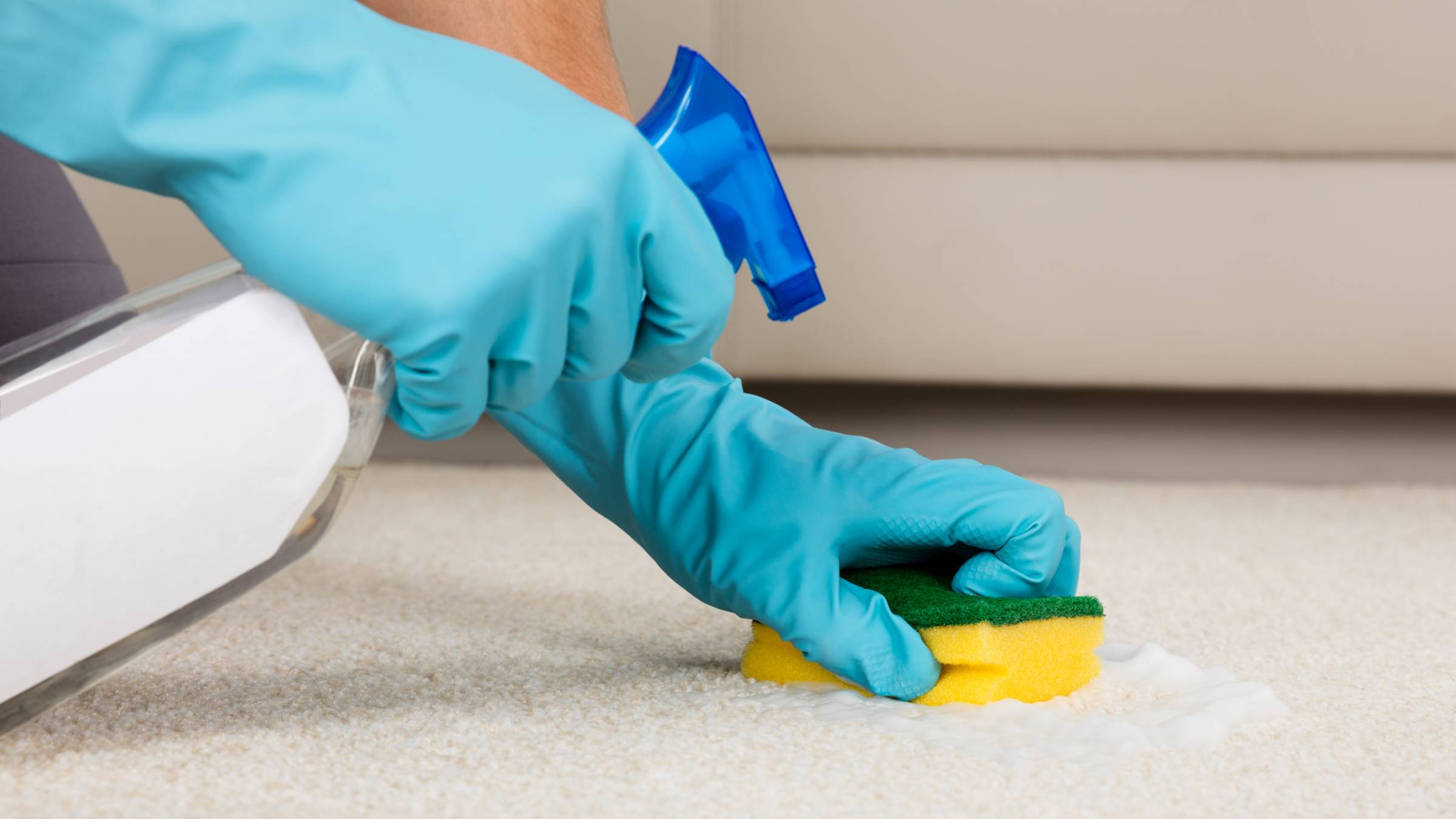 Cold water mixed with mild dishwashing detergent used to clean blood stain off the carpet
Cold water mixed with mild dishwashing detergent used to clean blood stain off the carpet
The key to successful blood stain removal is acting swiftly. This method allows you to act fast with widely available tools: cold water, dishwashing detergent, and white cloth.
Fill a spray bottle with cold water.
Directly spray the cold water onto the wet blood stain.
Grab a clean cloth to blot the blood stain gently and dilute the blood. Refrain from rubbing to prevent spreading the stain.
For better results, mix a small amount of mild dishwashing detergent with cold water. Apply the mix to the stain, then blot with a clean cloth.
Continue the spray and blot technique until the bloodstain disappears. This may take a few repetitions, so be patient!
For the finishing touch, perform final blotting using a clean, dry cloth, or simply let the spot air dry naturally.
An alternative method is using a wet vac to expedite drying. This can be especially helpful to ensure the spot is thoroughly dry.
Method 2: Vinegar solution
Vinegar is known for its stain-fighting abilities, including fresh blood stains. It’s even used as a solution to clean vomit off a carpet. Here’s how to use it effectively:
Begin by mixing a solution of 1 cup of vinegar and 2 cups of cold water.
Load the solution into your spray bottle and evenly spray it onto the bloodstain. Alternatively, you can submerge a clean cloth directly in the vinegar solution. Gently blot the stain repeatedly, allowing the solution to work its magic.
Keep at it! Continue spraying and blotting until the bloodstain dissolves. Depending on the severity of the stain, this may take several repetitions.
Once the stain has vanished, perform a final blotting using a clean, dry cloth. This helps absorb any residual vinegar and water.
Allow the treated spot to air dry completely, giving it the time it needs to regain its pristine state. If you’re in a hurry, consider using a wet vac to expedite the drying process.
Method 3: Salt or cornstarch paste
When dealing with a dried blood stain, making a paste with salt or cornstarch can be incredibly effective. Here’s a simple way to do it:
Combine either salt or cornstarch with cold water to create a thick paste. The goal is to make a paste that’s easy to work with.
Gently spread the salt or cornstarch paste, ensuring to cover the entire dried blood-stained area.
Leave the paste for roughly 30 minutes. This gives the mixture time to penetrate and loosen the dried blood.
Using a brush, gently scrub the stained area. Be careful not to damage the carpet fibres, as dried blood can be somewhat abrasive.
Gently blot the stain with a clean cloth or paper towel to rid of the paste and dissolved blood. You should notice the stain fading as you do this.
Rinse the treated area with cold water and blot dry with a clean cloth. Ensure the spot is completely dry.
For any remaining traces of the stain, you can proceed with one of the other methods mentioned in this guide to ensure thorough stain removal.
Method 4: Carpet stain remover
 Cleaning blood stains using a carpet stain removerCarpet stain removers, available in most stores, can be highly effective for tackling blood stains on carpets. If you have this one at home, below is an easy guide on how to use it to clean blood from your carpet:
Cleaning blood stains using a carpet stain removerCarpet stain removers, available in most stores, can be highly effective for tackling blood stains on carpets. If you have this one at home, below is an easy guide on how to use it to clean blood from your carpet:
As with other methods, begin by blotting the excess moisture from the carpet using a white cloth or paper towel.
Follow the instructions on the stain remover label carefully. Different products may have varying applications and dwell times.
Apply the carpet stain remover to the blood stain according to the product’s instructions. Typically, this involves spraying or applying the solution directly onto the stain.
Let the product sit on the stain for the specified dwell time mentioned on the product label. This gives the product time to break down and lift the blood stain.
After that time, gently blot the area using a clean cloth to remove the stain and excess product. Avoid rubbing.
Rinse the treated area with cold water and soak it dry with a clean cloth to get rid of any remaining stain remover and dissolved blood.
Check the treated area for any remaining traces of the stain. If needed, repeat the process or consider using another method.
Method 5: Hydrogen peroxide solution
This method is suitable for more stubborn stains. Remember to do a spot test first when using hydrogen peroxide on coloured carpets because it may cause fading and discolouration. This is typically one of the harshest methods for carpet fibres, so use this as a last resort!
Begin by applying hydrogen peroxide to a clean cloth.
Blot the bloodstain with the wet cloth soaked with peroxide. As you do, you might notice some fizziness and bubbling—don’t be alarmed because that’s completely normal!
Once the stain fades, rinse the area by blotting it with a damp rag. This step helps neutralise any remaining peroxide.
To thoroughly dry the spot, press on the area with a clean towel a few more times to absorb any excess water.
Allow the treated area to air dry or use a wet vac for expedited drying. This lets the area return to its original, stain-free state.
Take the cleaning off your hands with Airtasker
While these methods can effectively clean the blood off your carpet, sometimes life gets too busy, and you need help. Airtasker can connect you with local professionals to help you with cleaning and other tasks. Whether you’re dealing with a stubborn blood stain or just want the convenience of leaving it to the experts, Airtasker can connect you with skilled individuals who can get the job done!
FAQs on cleaning blood off a carpet
They are not necessarily permanent, although old blood stains pose a challenge to remove. Timely action is more effective, as blood proteins can bond with fabric fibres over time. But don’t lose hope! Employing suitable stain removal methods can still yield positive results. Success depends on factors such as fabric type, stain age, and cleaning method used.
Baking soda is a versatile odour-absorbing agent, helpful for blood stain removal. When used with other cleaning methods like salt, cornstarch, or vinegar, it can effectively refresh your carpet by absorbing and neutralising unpleasant odours.
Using rubbing alcohol to remove blood stains from carpets can be effective but should be considered moderately harsh. While it can effectively break down and lift the stain, it should be used cautiously, especially on delicate or sensitive carpet fibres.
If any lingering residue doesn’t respond well to the DIY methods, it's recommended that you consider hiring professional carpet cleaners. They can use carpet steaming or shampooing techniques to deep clean the affected area.
Find carpet cleaners, fast
Find a carpet cleaner
Related articles
Related price guides


